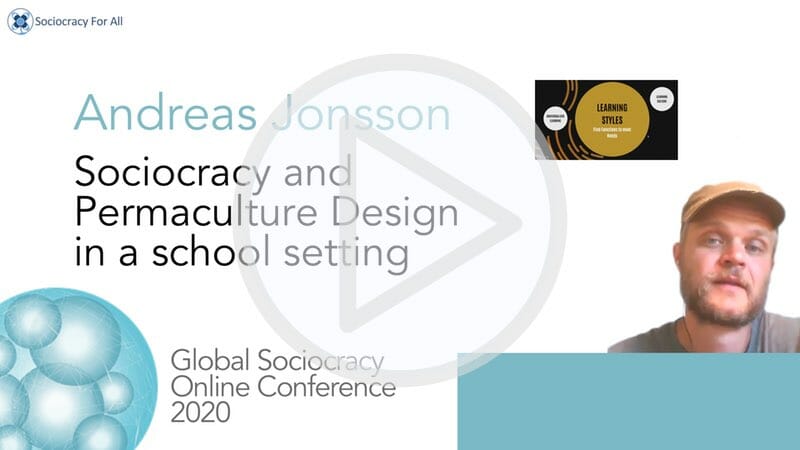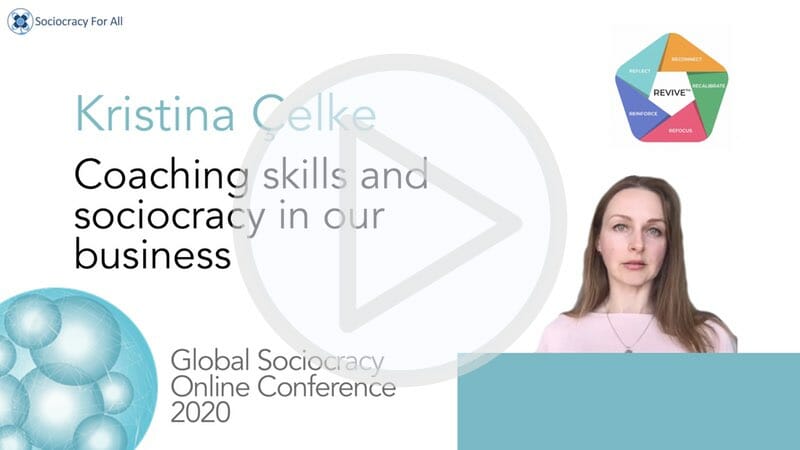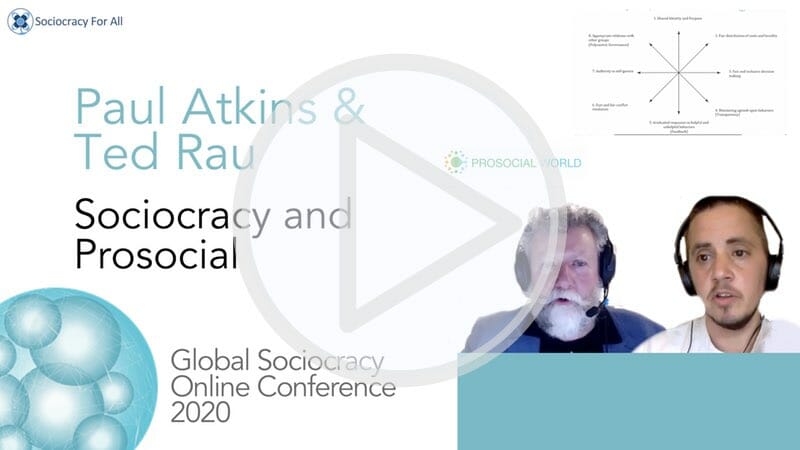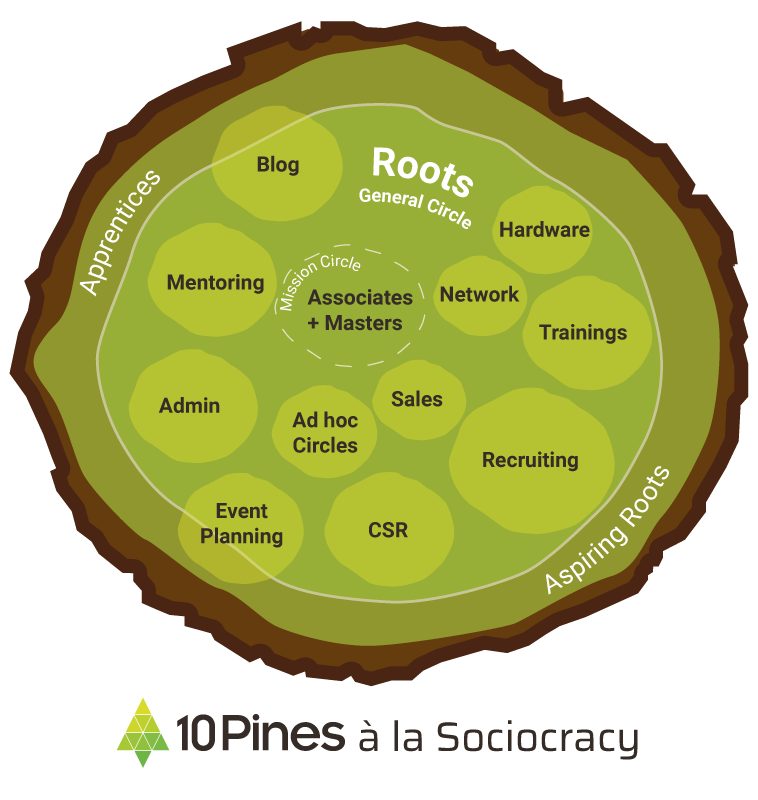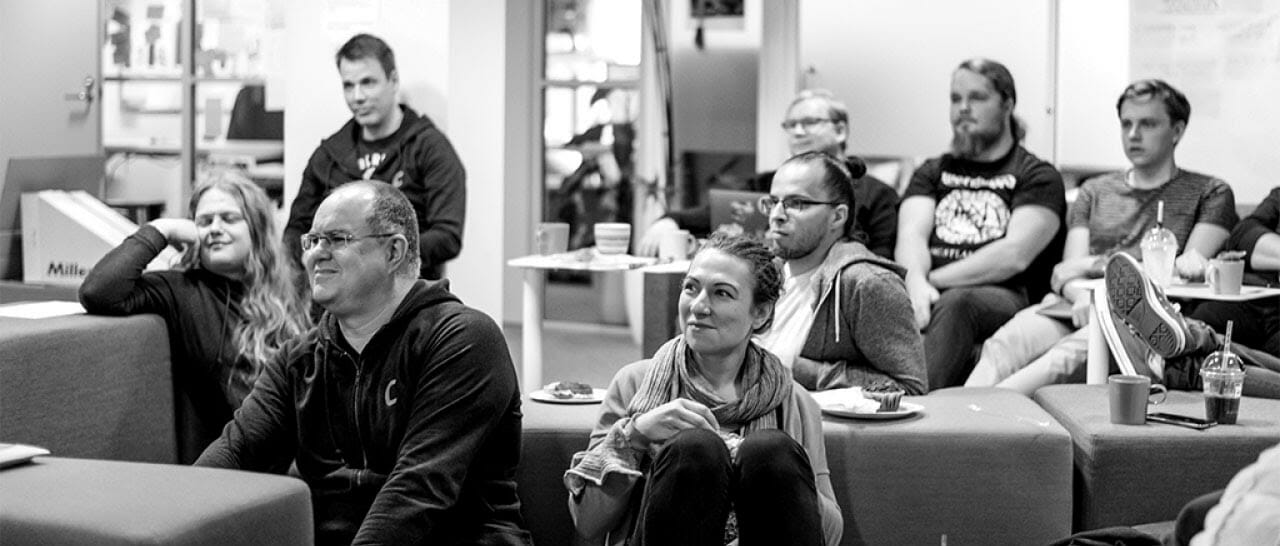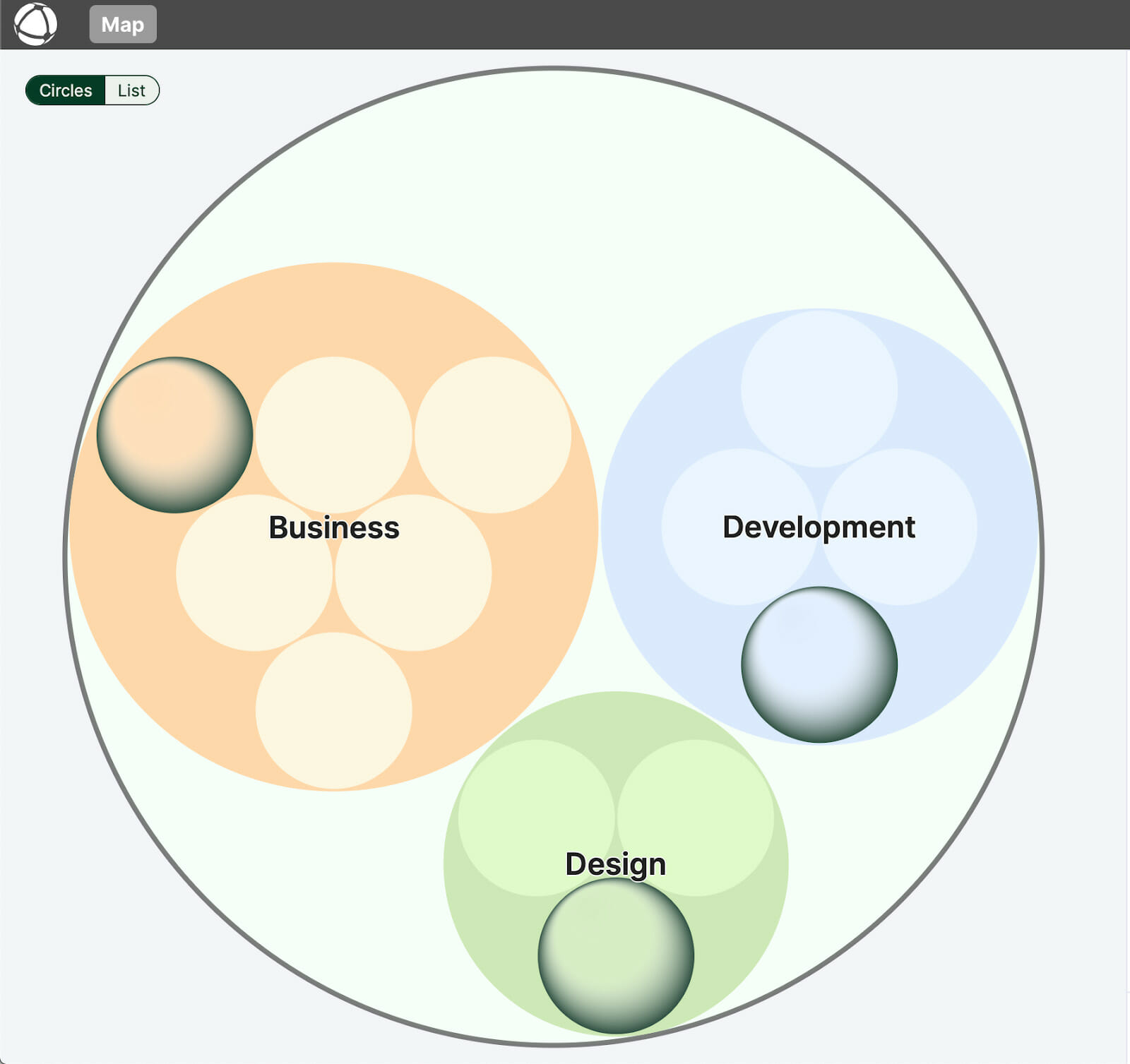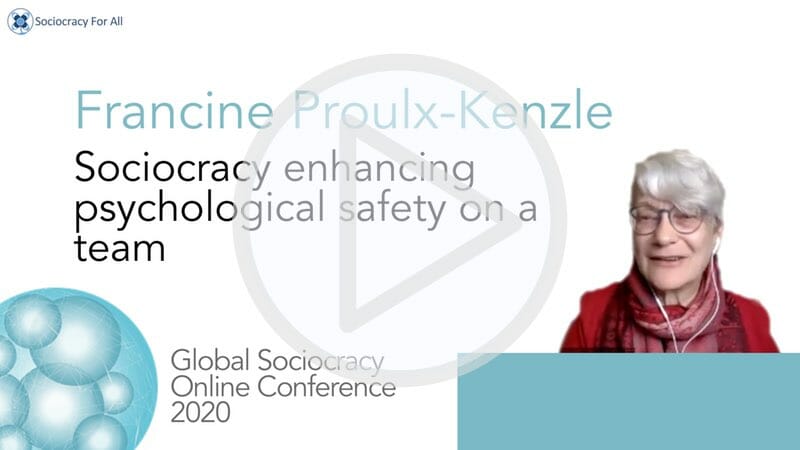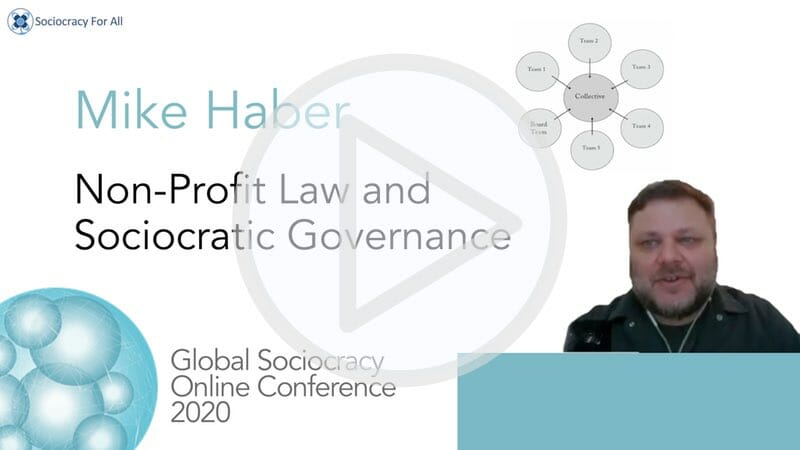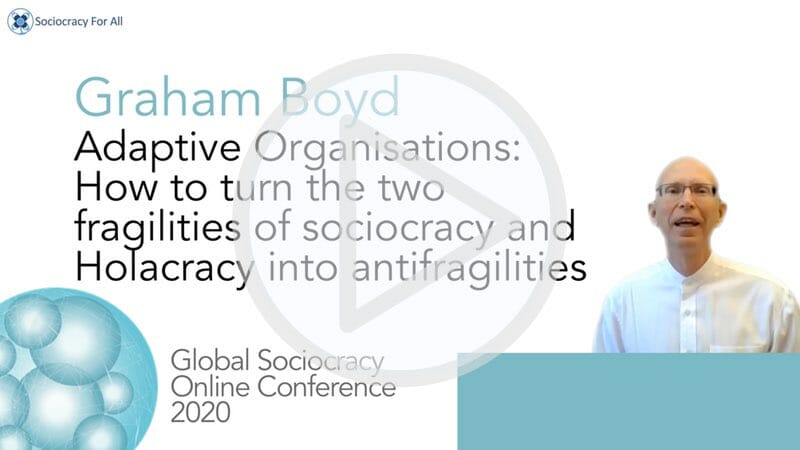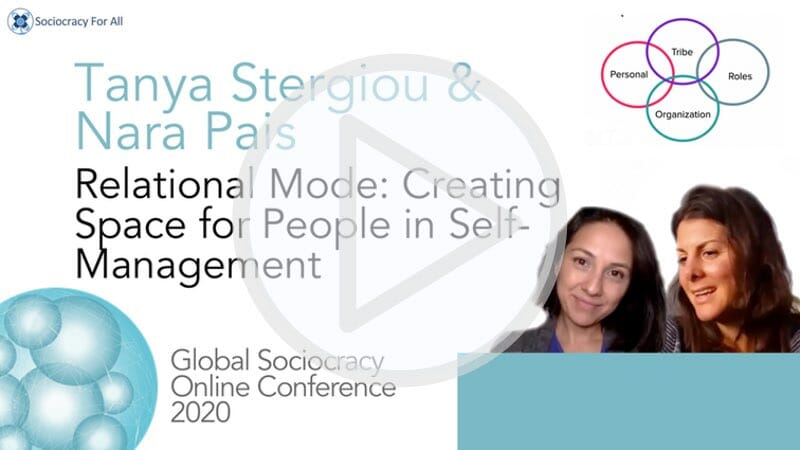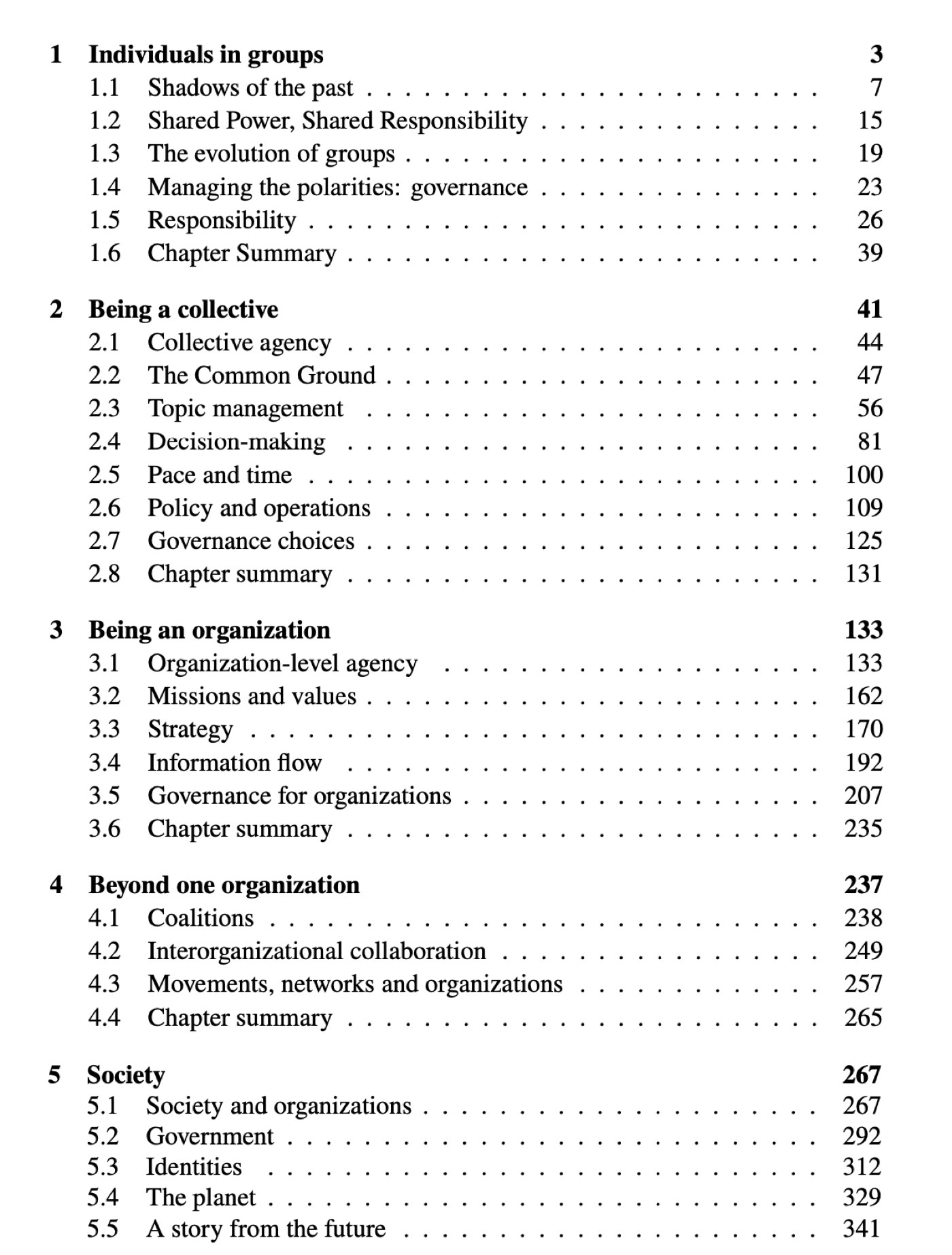Category: Topic
-
Sociocracy and Permaculture Design in a School Setting
A presentation by Andreas Jonsson. How can we integrate Sociocracy with Permaculture Design to get things done effectively and sustainably, and at the same time learn a lot? Andreas is a Permaculture Designer & Teacher. He works as a selected School Head Master at Holma – a school for Adult Education, which is run with…
-
Coaching skills and sociocracy in our business
Presentation by Kristina Čelke. Description: As H. Froyd said: “Coming together is a beginning. Keeping together is progress. Working together is success.” In this presentation I will talk about how sociocracy and coaching skills can create bigger value for organisations and teams and that they could/would be able work with ease. Also I am going…
-
Sociocracy and Prosocial
Presentation by Paul Atkins and Ted Rau. Prosocial is a first change method based on evolutionary science to enhance cooperation and collaboration for groups of all types and sizes that’s effective at a global scale. It It dovetails beautifully with sociocracy – in this talk, Paul and Ted will show how the two frameworks enhance…
-
Case study: 10pines
—
by
10Pines is a 10-year-old software development company headquartered in Argentina with agile manifesto values and a peculiar way of working at its roots. With 85 employees, 10pines has more than $3M in sales and it serves both startups and large clients such as Starbucks, Burger King, Turner, Claro, Teespring in North and South America. Due to…
-
Codento
Codento is a Finnish consultancy company based on sustainable software development where customer satisfaction is the most important, even if that means to recommend other companies to potential clients. They grow up together with customers helping those on achieving their goals and expectations.
-
Case study: Our Journey Investigating Scalability in For-Profit Organisations
When the Swiss design and development agency Nothing AG spun-off one of their internal products into an independent business called Peerdom, the Peerdom team initially started by replicating their mother company’s implementation of sociocracy.
-
Sociocracy enhancing psychological safety on a team
By Francine Proulx-Kenzle. Think of psychological safety as creating a safe space, a safe bubble, where a team member feels confident that no one on the team will embarrass or punish anyone else for admitting a mistake, asking a question or offering a new idea. Psychological safety helps individuals feel safe enough to broaden their…
-
Non-Profit Law and Sociocratic Governance
A presentation by MIke Haber. The presentation describes different ways that NGOs and non-profits have used sociocracy in their corporate governance structures. Based largely on Prof. Haber’s experience in representing U.S. activist organizations, he discusses different non-profit governance structures that embrace sociocracy within the context of the legal limitations on non-profits and NGOs.
-
Adaptive Organisations: How to turn the two fragilities of sociocracy and Holacracy into antifragilities
Presentation by Graham Boyd. Both sociocracy and Holacracy are superb at harnessing tensions to drive change at the task and role level in an organisation. Fragility 1: if you incorporate with governance only with one or two of the stakeholder groups, you build in a fragile power-over dynamic, incapable of harnessing the value in the…
-
Relational Mode: Creating Space for People in Self-Management
A presentation by Nara Pais and Tanya Stergiou. At Sociocracia Brasil, we soon found out that implementing Sociocracy entails a cultural change and a special attention to people and relations within the organization. Thus, for the past 4 years or so, we have been developing what we call Relational Mode, side-by-side to Governance and Operational…
